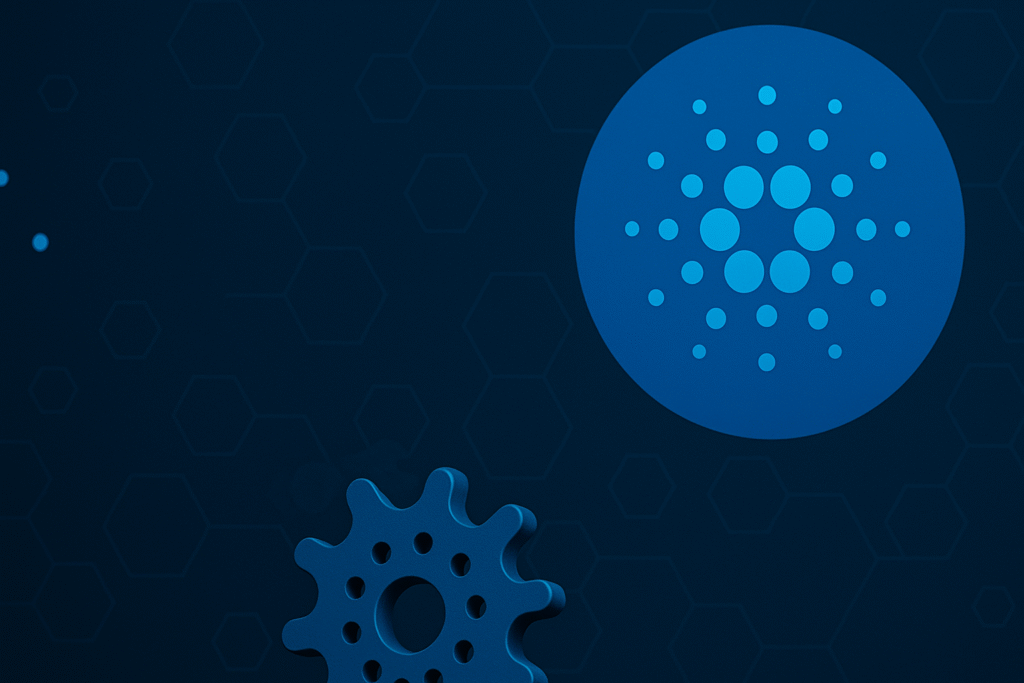The world of cryptocurrency continues to evolve with breakthroughs that promise to revolutionize existing frameworks. Within the vibrant ecosystem of Cardano, a new proposal has emerged, capturing widespread attention for its potential to reshape decentralized application development. This fresh initiative, spotlighted by industry leaders and experts, is poised to address long-standing challenges and pave the way for innovative functionalities within Cardano’s decentralized finance (DeFi) landscape.
How a New Cardano Proposal Could Transform dApp Development
In a dynamic turn of events, a novel “Account Enhancement” Cardano Improvement Proposal (CIP) has sparked considerable excitement across the network. Unveiled by Phillip Disarro, CEO of Anastasia Labs, this proposal promises to streamline on-chain governance for decentralized applications, a process currently fraught with complexity. Disarro urged developers to delve into the proposal, highlighting its potential for revolutionizing dApp infrastructure.
The Significance of this CIP for Cardano
Described as a game-changer for Cardano’s decentralized application ecosystem, this CIP seeks to ease the process of implementing on-chain governance systems—a task currently considered arduous. The proposal, as previewed on GitHub, introduces native-asset deposit support to Cardano’s reward-style accounts. This modification would enable transaction outputs that only lock non-ADA tokens as deposits and facilitate smart contracts to pay sub-ADA “micro-fees” through token fractions sent to a recipient’s reward address. Additionally, the proposal allows the Cardano Treasury to maintain diversified native-asset balances beyond ADA.
By transitioning deposit accounting from the UTxO layer to the reward-account mechanism, the proposal addresses a design choice that has constrained dApp teams; each token-carrying output is currently obligated to include a minimum of 1 ADA to prevent ledger spam and bloat, an overhead that hampers micro-transactions economically.
Advancements in Cardano DeFi
Most of Cardano’s DeFi protocols regard their governance or fee tokens as primary “native assets.” However, they are required to charge users ADA to meet minimum-value and network-fee demands. The Account Enhancement CIP outlines a pathway where protocol fees can be issued directly in tokens, eliminating the necessity for users to replenish ADA balances. This innovation enables the construction of lightweight on-chain voting contracts, allowing deposits to be gathered and refunded in governance tokens, rather than ADA. It also simplifies Treasury accounting as Cardano embarks on the Voltaire governance era, outlined in CIP-1694.
What Lies Ahead for the Proposal
The proposal has yet to receive an official number. Its advancement depends on passing the defined public review cycle in CIP-1, where a volunteer editor manages comments before the Cardano Foundation’s CIP editors decide on its adoption, revision, or rejection. If approved, the change will be featured in a future protocol update; a specific hard-fork date remains undetermined. Developers who have examined the proposal’s text describe it as “surgically narrow but strategically huge,” due to its targeted approach in resolving a significant barrier hindering Cardano dApps from achieving cost-efficient user experiences akin to those on account-based chains. The proposal’s viability now hinges on the community’s ability to validate the design quickly, echoing Cardano founder Charles Hoskinson’s call for rigorous scrutiny.
What Impact Will This CIP Have on ADA’s Market Performance?
While market performance is influenced by numerous factors, this CIP, if adopted, could positively impact ADA by enhancing its network’s utility and efficiency. This could potentially drive increased investor interest and activity on the platform.
How Can Developers Get Involved with the CIP Review Process?
Developers eager to participate in the review process can engage through GitHub, where they can offer comments, suggestions, and improvements during the public review phase outlined in CIP-1. Active participation is crucial for refining the proposal and ensuring its successful implementation.
Are There Risks Associated with Implementing This CIP?
As with any technological advancement, risks such as unforeseen security vulnerabilities or implementation challenges exist. Thorough vetting and testing, alongside community feedback, aim to mitigate these risks and ensure the proposal’s robustness.
This comprehensive exploration of the latest Cardano proposal offers insights into its technological intricacies, investment implications, and transformative potential within the ecosystem. The detailed FAQs further illuminate the proposal’s significance, aiding readers in making well-informed decisions.

